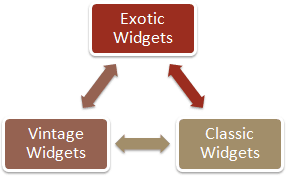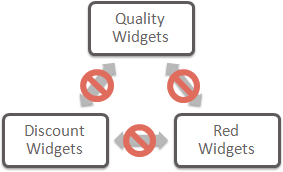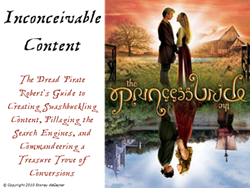If you have ever spent any amount of time doing keyword research you can walk away amazed (or even frustrated) about the sheer volume of ways people search for what is essentially the same thing.
Take a single core term like “window cleaner” and you can get dozens, if not hundreds or thousands, of search terms all using those two keywords. This is what happens in the world of search. Someone starts with a basic concept, then continues to refine their search by adding qualifiers such as: homemade, recipes, magnetic, insurance, liability, vinyl, glass, streak free and “confessions of a” (that’s no joke) to help them find more sites that offer what they are looking for.
 If you are in the window cleaning business, you can easily discount many of these qualifiers. But there will also be others in there that you most certainly will want to use to optimize your site for higher search engine rankings.
If you are in the window cleaning business, you can easily discount many of these qualifiers. But there will also be others in there that you most certainly will want to use to optimize your site for higher search engine rankings.
The question is, how do you target all of these qualifiers on your window cleaner web page? The simple answer is: you can’t. Nor should you want to.
Whatever keyword you are researching, the mass of keyword phrase + qualifiers can make you a bit overwhelmed. How do you target so many keywords without mucking up the site? One solution is to look at your keywords from a Research, Shop, Buy lens. Separate them based on visitor intent.
The next step is to start grouping and separating your keywords based on qualifier similarity within each segment of the shopping cycle. Pouring through a list of 50+ keyword phrases, you can immediately begin to see some distinctions between qualifiers and their meanings. The goal is to group together qualifiers that are similar in meaning and/or form a logical grouping together.

In the example above, I’ve chosen three words that can quite easily be worked into the content of a single page. If you are selling cars, you can now easily target “exotic cars,” “vintage cars”, and “classic cars” all on the same page without diluting the effectiveness of your content.
As you group similar qualifiers together, be careful about placing words together that either change the meaning or negate the others. If you were to add the word “cheap” to a page where you are also using the word “quality”, you are pretty much negating the ability to sell your item or service as “quality”.
The qualifiers used in the image above could also easily apply to a jewelry site as well. However, if you provide dance lessons, you probably won’t want to use “exotic” on the same page as “classic”. That gives these keywords an entirely different meanings.

Not all keywords will have a positive or negative impact on each other. But, for the ones that could have a possible negative impact on each other, use them together as a last resort. It’s better to find phrases that have similar meanings first.
When you target phrases with similar meaning and intent, you reinforce the message on the page. Why target the word “discount” when you’re talking about the quality of your products? Let the quality speak for itself. Have another page that offers discount items where you can go after “cheap” and “sale” and all those other words that would otherwise provide additional support or value to similar qualifiers.
Using similar qualifiers together is a great way to reinforce your message without having to repeat yourself over and over. It also helps you give your page an overall unifying theme that speaks to each visitor’s particular wants and desires.
The combination of qualifiers used will vary from site to site. Some combinations will work well for one site, but not for another, as I demonstrated above. But by grouping these similar qualifiers together, you are giving yourself fodder to move up, not only in searches using those qualifiers, but also in searches using your primary phrase. You use the many, similar words to help you focus on the one word that really matters.
 This post was inspired from The Princess Bride themed presentation I gave in early 2010 at SEMpdx’s Searchfest titled Inconceivable Content: The Dread Pirate Robert’s Guide to Creating Swashbuckling Content, Pillaging the Search Engines, and Commandeering a Treasure Trove of Conversions. If you enjoyed this post you also might enjoy other posts inspired from the same. Search for “inconceivable content” on this blog to find them all.
This post was inspired from The Princess Bride themed presentation I gave in early 2010 at SEMpdx’s Searchfest titled Inconceivable Content: The Dread Pirate Robert’s Guide to Creating Swashbuckling Content, Pillaging the Search Engines, and Commandeering a Treasure Trove of Conversions. If you enjoyed this post you also might enjoy other posts inspired from the same. Search for “inconceivable content” on this blog to find them all.
